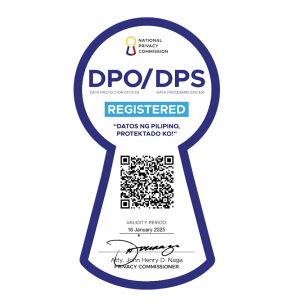Bachelor of Science in Computer Science
The BS Computer Science (BSCS) program includes the study of computing concepts and theories, algorithmic foundations, and new developments in computing. The program prepares students to design and create algorithmically complex software and develop new and effective algorithms for solving computing problems.
The program also includes the study of the standards and practices in Software Engineering. It prepares students to acquire skills and disciplines requires for designing, writing and modifying software components, modules and applications that comprise software solutions.
*Program description is lifted from CHED Memorandum Order No. 25 s.2015
The BSCS program has two specialization tracks:
Digital Forensics
The Digital Forensics (DF) specialization exposes students to the scientific process of acquiring, authenticating, and analyzing digital evidence. The goal of Digital Forensics is to gather artifacts as evidence to support or refute a hypothesis about an alleged crime or policy violation. In this specialization, students will be provided with both theoretical and hands-on experience using forensic hardware and software tools.
Machine Learning
The Machine Learning (ML) specialization introduces students to a broad cross-section of models and algorithms for machine learning and provides them with the skills to discover new information from volumes of data. It is focused on finding patterns by applying their knowledge in computing, predictive models, and data science. In this program, students will be equipped with theoretical concepts and real life applications of the benefits of analysis of data in various forms and other disciplines.
Total Number Of Units: 163 units
Program Education Objectives
- Have a professional careers in industry or academe or are engaged in advanced studies
- Continue to seek knowledge to thrive in an increasingly globalized society.
- Be successful team members or a team leader
- Conduct themselves with integrity and incorporate proper ethical considerations in development and administration of computing-based systems that contribute to nation building
Student Outcomes
- Analyze a complex computing problem and to apply principles of computing and other relevant disciplines to identify solutions.
- Design, implement, and evaluate a computing-based solution to meet a given set of computing requirements in the context of the program’s discipline.
- Communicate effective in a variety of professional contexts.
- Recognize professional responsibilities and make informed judgements in computing practice based on legal and ethical principles.
- Function effectively as a member of leader of a team engaged in activities appropriate to the program’s discipline.
- Apply computer science theory and software development fundamentals to produce computing-based solutions.
Career Opportunities
BSCS graduates may have the following job roles:
- Software Engineer
- Systems Software Developer
- Applications Software Developer
- Computer Programmer
- Systems Analyst
- Quality Assurance Specialist
- Software Support Specialist
- Research and Development Computing Professional
Specialization related job roles:
Digital Forensics
- Cybersecurity Analyst
- Cybersecurity Engineer
- Digital Forensics Analyst
- Information Security Analyst
- Security Consultant
- Penetration Tester
Machine Learning
- AI/Machine Learning Engineer
- Business Intelligence Developer
- NLP Scientist
- Data Analyst
- Data Scientist
- Data Engineer
